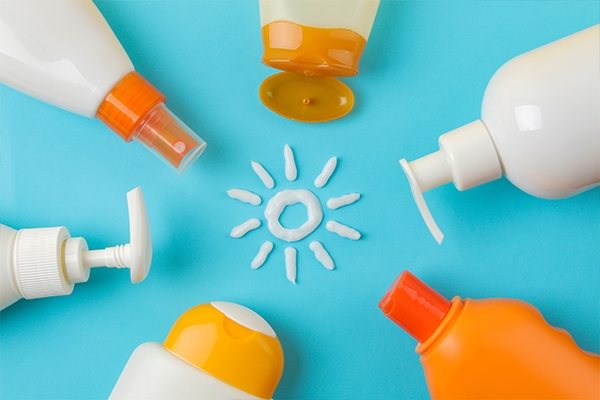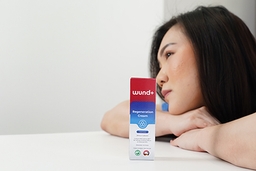Make Sunscreen Part of Your Routine

Living in Indonesia familiarizes us with sunlight. We are treated to the beauty of the morning sunrise, the heat of the afternoon sun, and the romantic violet of the evening throughout the year. Behind the gorgeous sun, we must remain cautious. Sunscreen simplifies everything.
Sunburn on the skin
Living things need the sun. For plants, the sun starts photosynthesis. For animals, the sun maintains a food web. And for humans, the sun supports physical growth as well as mental health.
The sun provides the planet with life by radiating (emitting energy) at the "perfect" distance. However, excessive sun exposure can result in cell death, decreased tissue and organ function, the formation of abnormal cells with cancer-causing potential, and mutations.
The skin protects itself against sunburn by creating melanin, a pigment that absorbs sunlight. Melanin deposits cause the skin to appear darker after prolonged sun exposure.
People with fair skin have less melanin pigment. So, under the same conditions, white people are more likely to burn because they absorb more sunlight than people with dark skin.
The existence of melanin pigment does not necessarily render our skin safe, because the sun's ultraviolet (UV) rays can still harm our skin tissue if we ignore them. That is why we must limit our exposure to the sun. Using sunscreen every day is one of the easiest ways.
What on earth is sunscreen?
Sunscreen shields the skin from the dangers of sun exposure. This includes minimizing sunburn and signs of premature aging, such as wrinkles and rough skin; lowering the risk of developing skin cancer; and preventing the skin from becoming sensitive as a result of certain treatments.
Sunscreen active chemicals generally work by absorbing UV radiation, preventing UV radiation from reaching the deep layers of the skin, or reflecting it. However, it does not mean we can just expose our skin to the sun after using sunscreen. Sunscreen cannot protect our skin from all types of radiation.
Sunscreen comes in a variety of types. Cream. Lotion. Gel. Stick. Spray. Choose whatever appeals to you. Remember, sunscreen is only for external use, so follow the instructions carefully.
Use it every day, even if you don't intend to go outside. If you must go out, apply sunscreen 15–30 minutes before leaving. The longer you are exposed to the sun, the higher the SPF you require.
Now, what is SPF?
The sun protection factor (SPF), according to the FDA, is the amount of solar energy capable of stinging protected (sunscreen) skin relative to the amount of solar energy capable of stinging unprotected skin.
The higher the SPF, the higher the protection against sunburn. Because it is defined as the amount of energy, it is less precise if SPF is related to time. For example, if sunscreen X says SPF 15, it doesn't mean that it can protect our skin from sunburn for 15 hours. This is a misconception.
Certain SPFs are also incapable of protecting everyone's skin. This is due to the fact that everyone's skin type and character, area of residence, and variety of activities are unique.
The intensity of the sun also varies throughout the day. The intensity of the sun, for example, is higher during the day but shorter than in the morning and evening.
What we need to understand about SPF is that the higher the number, the better it will prevent sunburn on the skin.
There is also the term "broad spectrum" in addition to SPF. This term indicates that the product can protect the skin from both UVB and UVA rays. UVB leads to skin damage in a short period of time, such as by burning the skin, while UVA causes long-term damage, such as aging.
Sunscreen buying advice

Sunscreen, like other skincare products, must be tested before being marketed. Even so, you must be quite astute in order to select the best one for you. Do not simply follow trends or bestsellers.
To get the most out of your sunscreen, make sure it contains the following qualities:
- Broad-spectrum protection against UVA and UVB radiation.
- SPF 30 or higher.
- Waterproof, so it will not be easily wiped by sweat.
In addition to meeting the qualities above, make sure the sunscreen you choose matches your skin condition, such as creams for dry skin and gels for oily skin. Spray sunscreen is flammable. So avoid using it near a fire or embers.
If you have to stay in the sun for a long time, use sunblock instead of sunscreen. Sunblock can better protect the skin from more intense sunburn.
Sunscreen enhancement

After identifying the best sunscreen for your skin, optimize its effectiveness in the following ways:
- Limit your time spent in the sun, especially between 10 a.m. and 2 p.m.
- Wear long sleeves, long pants, sunglasses, a wide-brimmed hat, or an umbrella to protect yourself from the sun.
- Apply sunscreen as advised on a regular basis.
- Reapply sunscreen at least every two hours, and more frequently if you sweat a lot or go in and out of the water.
Sunscreen products are essential not just for adults but also for children and teenagers. However, keep sunscreen away from infants under 6 months old because their skin is still thin.
Rather than protecting them, sunscreen might be detrimental. When you take your baby out, simply cover them with proper clothing.
Last but not least, sunscreen, like other skincare products, might irritate. Stop returning if your skin becomes more pimpled, scratchy, or hot and red following the application!
The sun doesn't choose who it shines on, so everyone should apply sunscreen. Whether you are women or men, adults or teenagers, old or young. Make sunscreen part of your routine.
If you have questions related to skin health, click on WhatsApp or visit GWS Clinic, a health clinic, in Jakarta.



